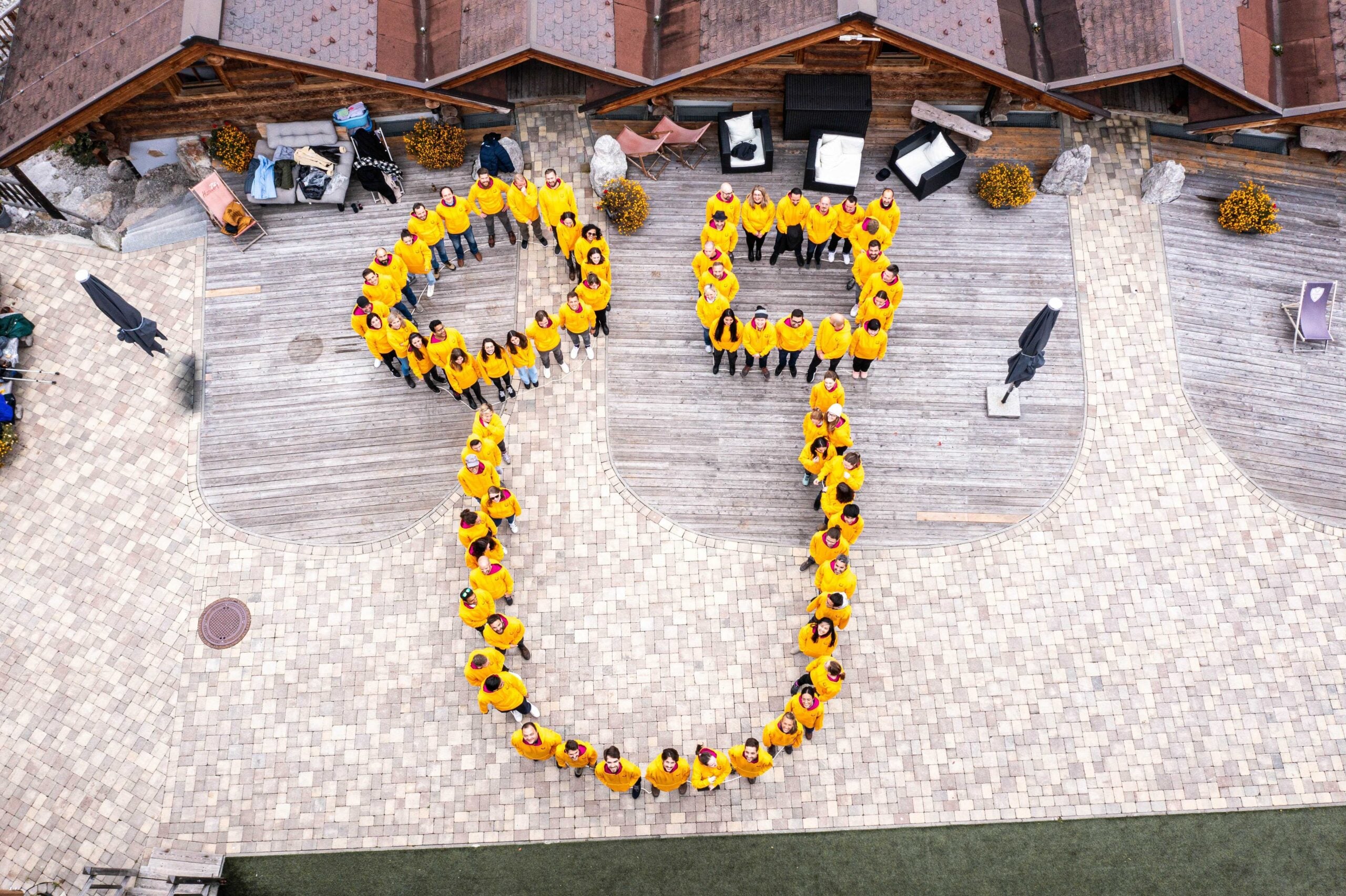
Felix Eichler is the CTO and co-founder at Userlane, the digitalisation startup. The München-headquartered startup helps businesses automate user onboarding and employee training. So far it has raised $16.3m in funding.
Companies have been digitalising their businesses for years. However, these efforts accelerated during the pandemic.

Access deeper industry intelligence
Experience unmatched clarity with a single platform that combines unique data, AI, and human expertise.
“The Covid-19 pandemic has given businesses an unprecedented opportunity to implement profound changes to the way we work,” GlobalData researchers wrote in a recent thematic research report about the future of work.
“From digitising processes and re-shaping supply chains to redesigning offices, the pandemic will leave a lasting legacy. For manufacturers, technology will play an increasingly prominent role in building resilience. As for office work, this will not be the same after Covid-19. Physical spaces will be transformed, and remote working, supported by technology, will become the norm for millions of employees.”
Userlane and the startup’s CTO are at the forefront of the corporate digitalisation revolution.
In this CTO Talk, the Userlane executive reveals why he, despite being a tech evangelist, believes technology should remain boring. He also reveals what companies get wrong with their digitalisation efforts.

US Tariffs are shifting - will you react or anticipate?
Don’t let policy changes catch you off guard. Stay proactive with real-time data and expert analysis.
By GlobalData
Eric Johansson: Tell us a bit about yourself – how did you end up in your current role?
Felix Eichler: I’ve been passionate about technology since I can remember. I wrote my first code at age 10, and then got quickly admitted to the Technical University of Munich at 15 after I reprogrammed my school’s website.
I was inspired by entrepreneurs and the passion they have for their projects, so I started freelancing and ended up co-founding Userlane at 20. I’m now 26 and last year I was featured on the Forbes 30 Under 30 list. But what I’m most proud of is the culture and product we’re building at Userlane.
Where did the idea for Userlane come from?
As freelancers, my co-founders and I had been delivering software development projects for midsize and large clients, and while they were thankful for the apps we built, they struggled to adopt them internally. They asked us once to prepare a PowerPoint-based training session to be held in-person for one of the new apps we’d made, and that’s when we decided we’d had enough. There had to be a smarter way to train.
And so we built and embedded interactive guides that helped users navigate through the app. We soon discovered that many customers had similar challenges, and we built Userlane as a platform that can fit on top of almost any web-based app to achieve better user adoption.
Where did your interest in tech come from?
I’ve just always had it. Even as a young kid, I was more interested in non-fiction books that explained something rather than the fairy tales. When building stuff, I got addicted to the feeling of creating something. Something that is helpful to its users, even when its creator is not personally present anymore. I am fascinated by what one person with a laptop can create.
What do people get wrong in their digitalisation efforts?
I frequently see people believe that digitalisation is about technology. But it’s not. Digitalisation is about people. The core challenge in digitalisation is not about building new apps and leveraging new technologies, it’s about getting them implemented and adopted by the people and teams in the field. After all, technology should serve the people, and not the other way around.
If it goes wrong, digitalisation can have a major impact on the employee experience. In fact, according to recent Userlane research, 88% of employees feel that using technology without frustration is essential to both their productivity and happiness at work.
How do you separate hype from genuine innovation?
I try to understand things from first principles. Hype usually uses circular or referential logic, for example, if people believe that a product would be better just because it’s built on web3, without questioning why that is, and whether the technology truly aligns with the interests of all stakeholders.
I think genuine innovation can be explained bottom-up, through first principles, which means building a set of assumptions from scratch to reason for something. And that does not need any role models or reference cases to be understood. You can truly create something that hasn’t been seen before.
What one piece of advice would you offer to other CTOs?
Keep the technology boring and find excitement in the use cases of the customers. I’ve learned that technological fanciness is basically worthless if it doesn’t help the users or if customers don’t receive a significantly better product. As a CTO, it is your job not just to enable the right use of technology, but to also prevent the overuse of technology.
What’s the most surprising thing about your job?
That I’m building teams and culture, not only technology or products. I’m applying product management thinking to building our team culture. Taking all observations as feedback on how well our processes are working, then making the smallest but highest-value adjustment possible, and then repeat the same. It involves a lot of listening and measuring.
What’s the biggest technological challenge facing humanity?
I think it’s going to be a wild challenge to keep planet earth intact and an easily inhabitable place. We’ve already used technology that impacts the ecosystem of nature in drastic ways. Like digging up significant amounts of oil which, when burned at such planetary scales, leads to an increase in temperature and, in turn, a whole bunch of other problems. The challenge in that is not just limiting or reverting the damage, but also to step in and redesign the ecosystem to our needs. I believe that humanity has to take responsibility for our planet.
If we can fantasise about terraforming Mars, we need to realise that it might be necessary to do the same thing on Earth one day. We’re calling this geoengineering, and it’s a lot like playing god, making changes to the ecosystem of nature to achieve certain desired conditions. I think getting this right is the greatest challenge, and it has the potential to give us an everlasting paradise, but the stakes are high. We should choose wisely.
What’s the strangest thing you’ve ever done for fun?
Jump off a bridge. I did a bungee jump this month during my bachelor party. When you think about it, isn’t it strange that people do this for the thrill of it? A part of your mind believes it’s going to die and only the more advanced parts of your mind knows that it’s going to be okay. It was a fascinating experience to feel this duality.
What’s the most important thing happening in your field at the moment?
I think the rise of mindfulness in the workplace is an important shift. I’m glad that people are expecting an ever higher level of leadership and empathy that truly creates an environment where people can do their best creative work. The days of mundane work are counted. I think people-centric, purpose-driven workplaces lead to better work results and better outcomes for everyone.
In another life you’d be?
Maybe a civil engineer. I find it very interesting to shape the places we’re inhabiting, and I believe the design of physical space can have a great influence on the perceived quality of life. I think we underappreciate the impact of well-designed buildings, neighbourhoods, and cities.
GlobalData is the parent company of Verdict and its sister publications.







